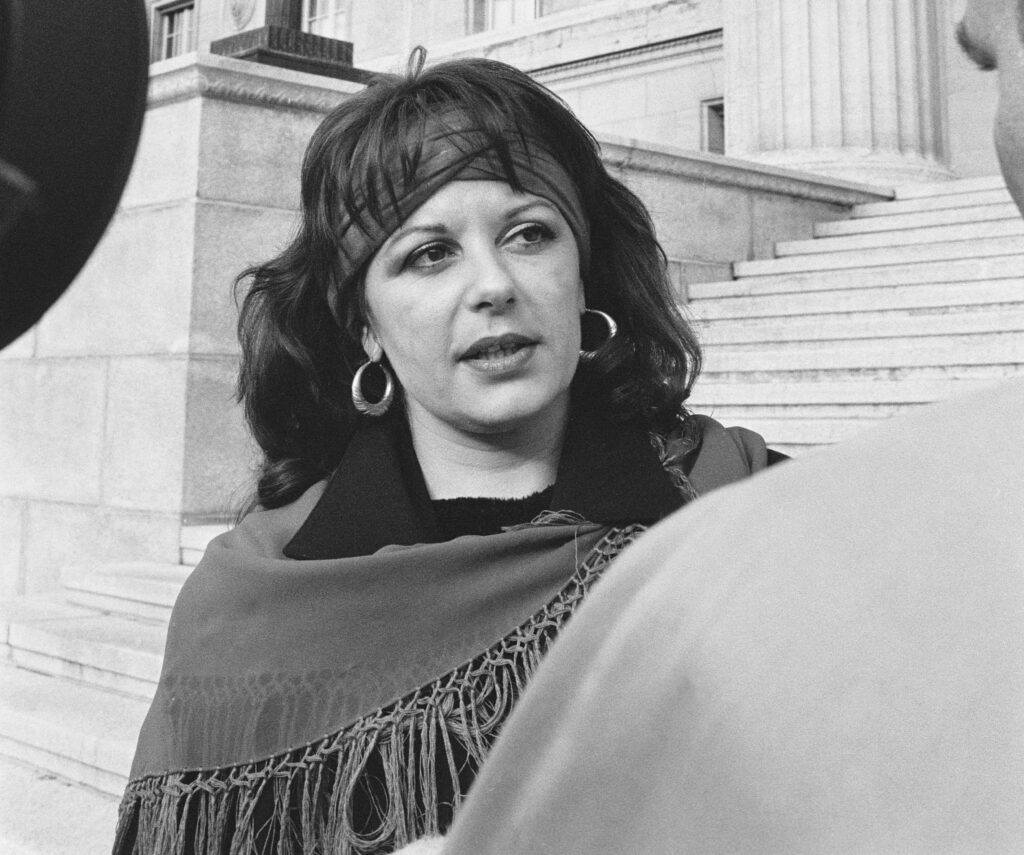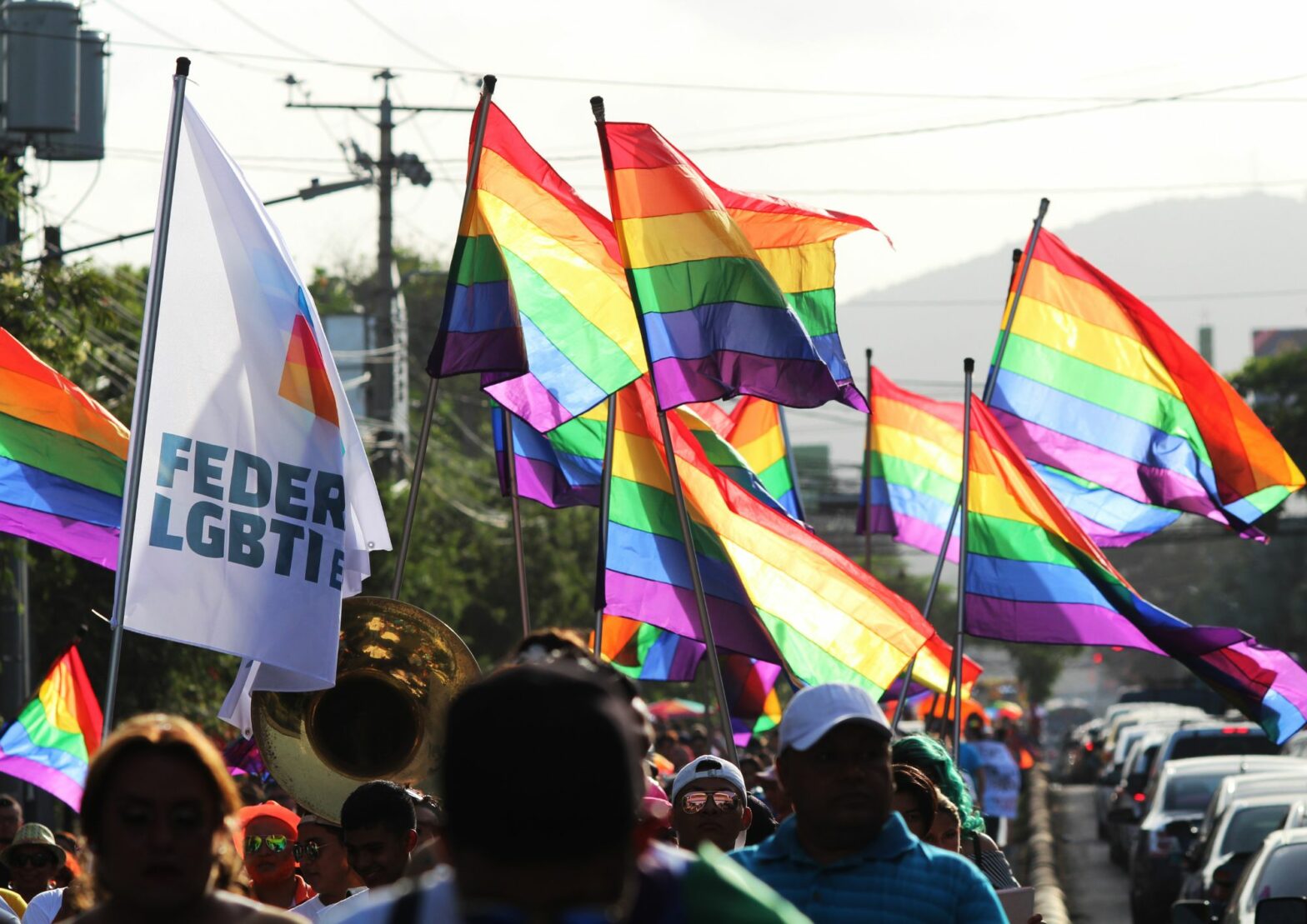Share Twitter Facebook Email Copy URL
Against all odds
In 2021, Switzerland marks 50 years of democracy. In 1971, Swiss women were finally awarded the right to vote and to be elected at federal level, just like Swiss men. In the cantons, however, the path to democracy was quite a different one. While the canton of Vaud considered women and men to have equal political rights at the cantonal level as early as 1959, Appenzell Innerrhoden denied women this basic democratic right until 1990. The fact that the women of Appenzell have had an equal say in political matters since 1991 is due to one woman: Theresia Rohner. She fought her way through the courts and prevailed against hatred and opposition. A heroine’s story.

Theresia Rohner was in her mid-thirties, owned a pottery store and was living in Appenzell with her husband and two small daughters when she decided to stand up for her right in 1989. Why shouldn’t she be allowed to participate politically in the canton where she lived and worked? She was tired of hearing excuses.
So far, all attempts to give women the right to vote at the cantonal level had failed in Appenzell because the decision was up to men only. The people of Appenzell had already voted “NO” twice – in 1973 and 1982 – on women’s suffrage at the cantonal and communal level, preventing their wives, sisters, mothers and daughters from having their own political voice.
On April 5, 1989, Theresia Rohner turned to the cantonal government: she wanted the right to participate in the upcoming “Landsgemeinde”* just like men would. The request was rejected invoking the cantonal constitution, which mentioned only “Swiss” (“Schweizer und Landleute“) with voting rights — and the term “Swiss” would not mean women.
In Appenzell, Rohner was now considered an anarchist, and no one wanted to support her. Yet, she took the matter to the Federal Court. She argued that denying women the right to vote in cantonal matters equaled to an unconstitutional discriminatory treatment of women. But the Federal Court returned the complaint to the next “Landsgemeinde”, which was set to vote on women’s suffrage. In doing so, the federal government wanted to give the men of Appenzell the opportunity to come to their senses and vote in favor of women’s suffrage — an attempt that went thoroughly wrong, as can still be seen on YouTube today: The matter was dismissed in only 28 seconds (!), as the men once again rejected women’s suffrage with a large majority and to gleeful cheers.
Only now did Theresia Rohner find allies. A total of 100 men and women turned to the Federal Court and demanded equal rights. As the leader of the initiative, Rohner was harassed and received threats through anonymous phone calls.
The date of decision came. On November 27, 1990, the Federal Court in Lausanne unanimously and unequivocally announced: “Whoever denies women the right to vote violates the Federal Constitution.” From now on, the women of Appenzell were entitled to vote and to run for office. Theresia Rohner had reached her goal.
But the conflict in her home canton was not over yet. The ones that had been defeated reacted with outright misogyny. Stones flew through the window of the pottery store. Theresia Rohner and her relatives received police protection.
The police were also there to protect them when, a few months later, on April 28, 1991, women in Appenzell were allowed for the first time to participate in the “Landsgemeinde” as citizens entitled to vote. Contrary to expectations, the election was peaceful.
Even today, men and women in Appenzell say that they would never have stood up for women’s suffrage at the time. They were convinced that it was “only a matter of time” until Appenzell would come to its senses like other cantons did. How fortunate for the women of Appenzell that one woman was ahead of her time: Theresia Rohner.
*The Landsgemeinde is an institution of direct democracy taking place in two Swiss cantons (Appenzell Innerrhoden and Glarus). It is an annual assembly held in the main square of the main town, bringing together the citizens of the municipality or canton. Its purpose is to solve collective problems or to carry out elections, by a show of hands.
Dr. Isabel Rohner, a cultural scientist, is an expert on women's movements in Switzerland and Germany. She is co-editor and author of the bestseller “50 Jahre Frauenstimmrecht. 25 Frauen über Demokratie, Macht und Gleichberechtigung” published by Limmat Verlag in 2020. She also co-hosts the feminist podcast “Die Podcastin”. She is not related to Theresia Rohner. Read more on: www.isabelrohner.com



